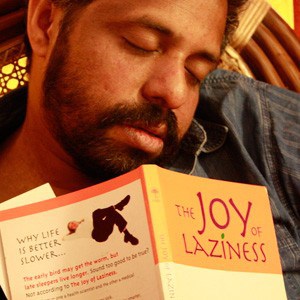Our circle of suffering
By W. P.

Our minds are always busy remembering, planning, hoping, and judging. We’re constantly analyzing our circumstances, looking for answers, or indulging in our moods. We do these things out of the motivation to be happy and to avoid suffering. The problem is that when we see that something is causing us to suffer we don’t want to correct it. It’s like once we found a solution we’re no longer interested in fixing the problem. The problem suddenly seems inconsequential. This is because of our fear to step outside the comfort of our daily routine.
When I was a kid my adopted father use to take me rabbit hunting. One of the first things he taught me was that a rabbit always runs in a circle when it’s being chased (usually a quarter mile). So once the rabbit dogs (beagles) started tracking a rabbit, all you would have to do is wait somewhere near where the dogs picked up the scent. In about 10 or 15 minutes the rabbit would come sneaking by, dashing from brush pile to brush pile. And if you missed it (I always did, I was too excited about being able to shoot the gun to worry about the rabbit), then all you would have to do is wait right in that same spot and after 15 or 20 more minutes the rabbit would come right back by.
I become sad when I think of the rabbit running for its dear life. Its body trembling, fur soaked with sweat, stopping for a split second to catch its breath before starting to its quarter mile of suffering once again, completely unaware that more suffering and death lies ahead.
The reason I am sad for the rabbit is because it doesn’t understand its situation. If it knew the danger and uselessness of running its quarter-mile circle it would immediately stop. If it knew that all it had to do to escape the dogs was dash to the nearby creek, swim downstream a few hundred yards, and cross to the other side, it would immediately do it! It wouldn’t spend a second longer running the circle.
Like the rabbit we also run in circles. Not just the kind of circles we measure by distance, but also mental and habitual circles. And like the rabbit we become so accustomed, so comfortable in these circles that we won’t step out of them even at the risk of our own life (smoking cigarettes is an excellent example).
But unlike the rabbit we know our situation. We know what’s harmful for us, and we have many great spiritual teachers and teachings available to us to show us the way to escape the dogs and the guy with the big gun (our circle of suffering, the wheel of samsara). Therefore lack of knowledge or wisdom is not our problem. Our problem is that we are lazy, soft, and undisciplined. Because unlike the rabbit who puts every ounce of his strength into its fight to break free from its suffering, we don’t even lift a single finger to break free of our situation. Instead we just end up philosophizing and intellectualizing about our problems, never making any real effort to fix them. Yet we call ourselves civilized and the rabbit an animal. Go figure!
Incarcerated people
Many incarcerated people from all over the United States correspond with Venerable Thubten Chodron and monastics from Sravasti Abbey. They offer great insights into how they are applying the Dharma and striving to be of benefit to themselves and others in even the most difficult of situations.


